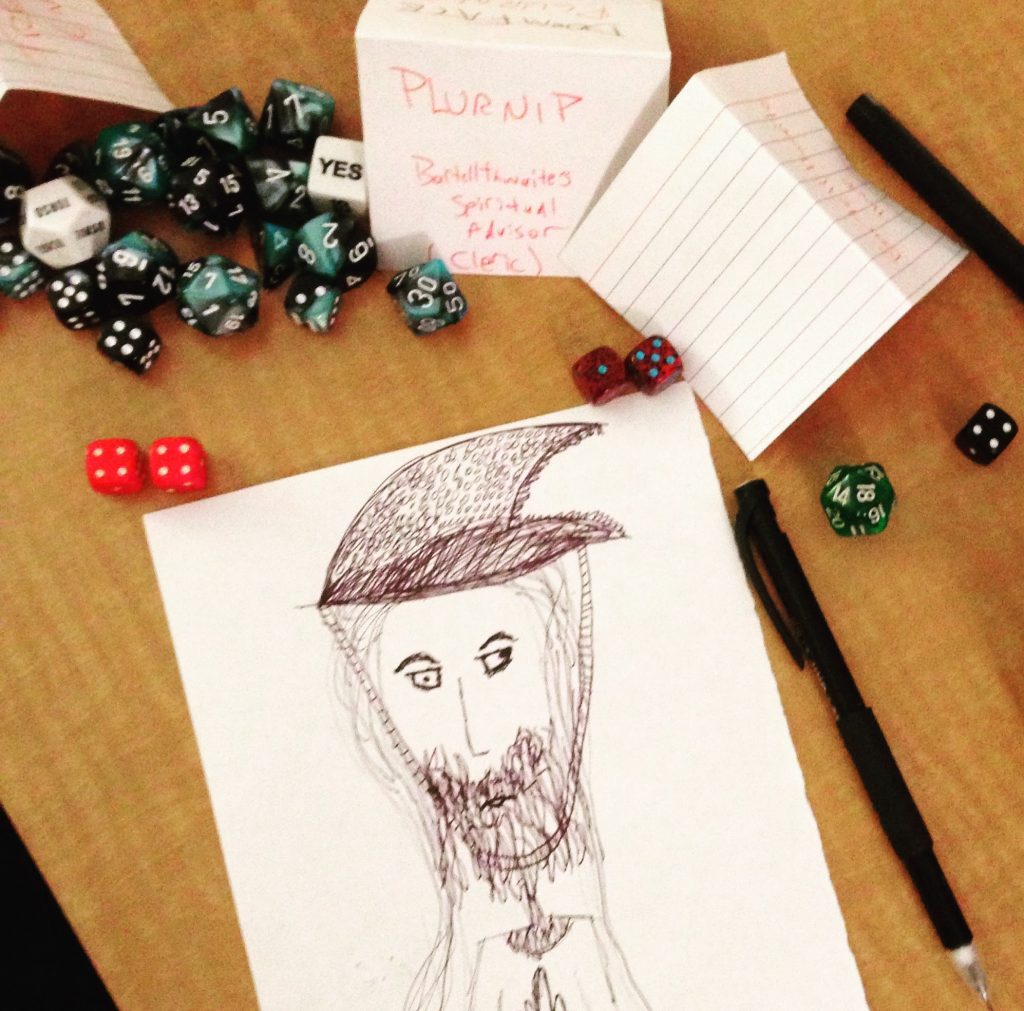What is a Tabletop Roleplaying Game (TTRPG)?
TTRPGs are an opportunity. An opportunity to create and connect. Most of the time with dear friends, some of the time with complete strangers. They allow us to tap into parts of our brains we don’t always have the time to escape to when the real world is bearing down on us. Creative and bold tactics to solve fantastical problems, daring deeds that rely upon a tense roll of the dice, the joy of telling a story that no one else has told before … ever. Some of the biggest laughs I have had in my life have come at the table during a gaming session. And yeah, TTRPGs are also chips and drinks, delivery, late nights you wished would never end, leveling up, scoring loot, cursing dice, cheering even the smallest victories, and forehead slapping when failure strikes at the most critical moment. But above all else, they are an opportunity to have some friggin’ fun.
— Davidson
— Davidson

This is what Wikipedia has to say:
A tabletop role-playing game (typically abbreviated as TRPG or TTRPG), also known as a pen-and-paper role-playing game, is a form of role-playing game (RPG) in which the participants describe their characters’ actions through speech. Participants determine the actions of their characters based on their characterization, and the actions succeed or fail according to a set formal system of rules and guidelines. Within the rules, players have the freedom to improvise; their choices shape the direction and outcome of the game.
Unlike other types of role-playing games, tabletop RPGs are often conducted like radio drama: only the spoken component of a role is acted. This acting is not always literal, and players do not always speak exclusively in-character. Instead, players act out their role by deciding and describing what actions their characters will take within the rules of the game. In most games, a specially designated player typically called the game master (GM) creates a setting in which each player plays the role of a single character. The GM describes the game world and its inhabitants; the other players describe the intended actions of their characters, and the GM describes the outcomes. Some outcomes are determined by the game system, and some are chosen by the GM.
The terms pen-and-paper and tabletop are generally only used to distinguish this format of RPG from other formats, since neither pen and paper nor a table are strictly necessary.
For a more detailed explanation, check out this article on the Roll20 Wiki.
